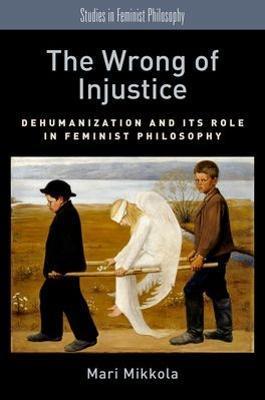Wrong of Injustice: Dehumanization and Its Role in Feminist Philosophy

Wrong of Injustice: Dehumanization and Its Role in Feminist Philosophy
feminist philosophers should articulate a thick conception of the gender concept woman around which feminist philosophical work is organized. However, Part I of the book argues that we should resist this move, and that feminist philosophers should reframe their analyses of injustice in humanist terms. Second, the book spells out a humanist alternative to the more prevalent gender-focus in feminist philosophy. This hinges on a notion of dehumanization, which Part II of the book develops. The argued for understanding of dehumanization is used to explicate the wrongness-making feature of social injustices, both in general and of those due to patriarchy. Dehumanization is not another form of injustice-rather, it is that which makes forms of social injustice unjust. The book's second part then provides a regimentation of social injustice from a feminist perspective in order to spell out the specifics of the proposed humanist feminism, and to demonstrate how it improves some non-feminist
analyses of injustice too.
PRP: 510.47 Lei
Acesta este Pretul Recomandat de Producator. Pretul de vanzare al produsului este afisat mai jos.
459.42Lei
459.42Lei
510.47 LeiLivrare in 2-4 saptamani
Descrierea produsului
feminist philosophers should articulate a thick conception of the gender concept woman around which feminist philosophical work is organized. However, Part I of the book argues that we should resist this move, and that feminist philosophers should reframe their analyses of injustice in humanist terms. Second, the book spells out a humanist alternative to the more prevalent gender-focus in feminist philosophy. This hinges on a notion of dehumanization, which Part II of the book develops. The argued for understanding of dehumanization is used to explicate the wrongness-making feature of social injustices, both in general and of those due to patriarchy. Dehumanization is not another form of injustice-rather, it is that which makes forms of social injustice unjust. The book's second part then provides a regimentation of social injustice from a feminist perspective in order to spell out the specifics of the proposed humanist feminism, and to demonstrate how it improves some non-feminist
analyses of injustice too.
Detaliile produsului









